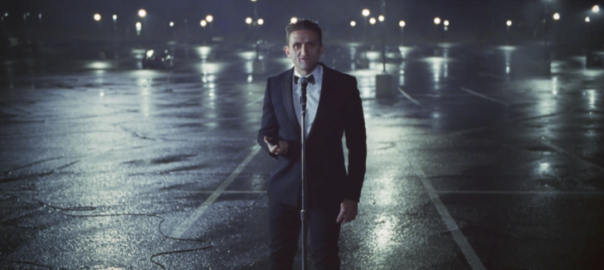This essay was originally published by The Huffington Post on 2/27/2017. It is reposted here with permission.
—
By:
There was another story that caught my eye last evening during the 89th Oscars celebrations. It was not the mistaken announcement for Best Picture that filled the front pages of the early morning news. Nor was it the surprised tourists who unknowingly entered the celebrations, starry-eyed and woefully under-dressed. In my mind, it was Samsung’s airing of a commercial called “The Rest of Us,” with filmmaker and ex-vlogger Casey Neistat.
I don’t know who Neistat is. I’ve never even seen his videos. And I realize this outs me as a slightly out of touch Gen X’er. But what I do know is that Samsung used its 60 seconds of fame to promote a product through the lens of a young and creative generation whose vitality and impact calls for increased educational support for the arts and humanities.
Samsung’s message projects that the arts and humanities are far from dead or in crisis. Their ad clearly shows that the arts and humanities do not only belong to the elite. No, they are alive and well and thriving in the hands of our most creative young innovators
Last night, just before the real winners for Best Picture were asked to stand up, Neistat addressed the several million global viewers—or at least those who weren’t taking a commercial break—by walking out into a dark, seemingly wet parking lot dressed in a tuxedo. He reached a mic, and as if to announce the next Oscar winners, he asked for permission….
…“to introduce the rest of us. We’re the makers. The directors. And the creators of this generation. We don’t have big award shows, or huge budgets or fancy cameras, but what we do have are our phones, and duct tape, and parking lots, and guts. And we have ideas we need to share. We know it’s not the size of the production that matters, it’s what you make. We don’t create because we have to. We create because we love to. And we capture billions of moments, from different angles, for different reasons, for millions of viewers, but with one thing in common: when we’re told we can’t, we all have the same answer: Watch me.”
When I watched this ad, I couldn’t help but think about the disconnect between the incredibly exciting passions presented here by the “creators of this generation” and the lack of state and federal support for arts and humanities education from K-12 and beyond. This is a commercial that could equally be saying: if we can’t have strong educational support in the visual arts, in music, theater, or drawing, we will go at it alone. We will not let you stop us. Just watch us. Take note. We will follow our passions. We will make our voices heard, our way.
Tellingly, more than one Oscar award winner last night thanked their parent, teacher or mentor for supporting their dreams and studies in the arts and humanities. Their success was born from people who understood that their passions and interests were to be considered more than mere hobbies to be indulged in one’s free time. They understood that the Oscars aren’t won by a DIY spirit alone; they also demand deep and prolonged study in musicology, performance, writing or illustration. And they were well aware that the development of these skills open doors to huge professional satisfaction and success.
Upon receiving the Oscar for best supporting actress for Fences, Viola Davis passionately appealed to the Academy to tell the stories of the exhumed. This was a plea to dig deep, quite literally, and to produce more diverse stories of the not yet heard. It was a plea to do what Neistat said the next generation was doing their own way, namely to “capture billions of moments, from different angles, for different reasons, for millions of viewers.” Imagine the stories that could be told if more of our children had access to great educational opportunities in the arts and humanities. Imagine how their glorious diversities might write the soul of this nation back into existence.
My daughter is a maker. She is currently directing a school play. Last night she made a laundry bag. She didn’t use duct tape, but she did use leftover material she found in her closet and started sewing on the floor while watching the Oscars. Just like Samsung’s commercial underscored, I did indeed watch her, in awe. And I was thrilled that she was seeing our most highly acclaimed film producers, designers, editors, writers, musicians, artists and actors being celebrated and celebrating their choices of profession. They provided a stark reminder of the real losers in our communities, namely all those kids whose talents are not being valued and furthered, whose creative stories will be lost forever.
